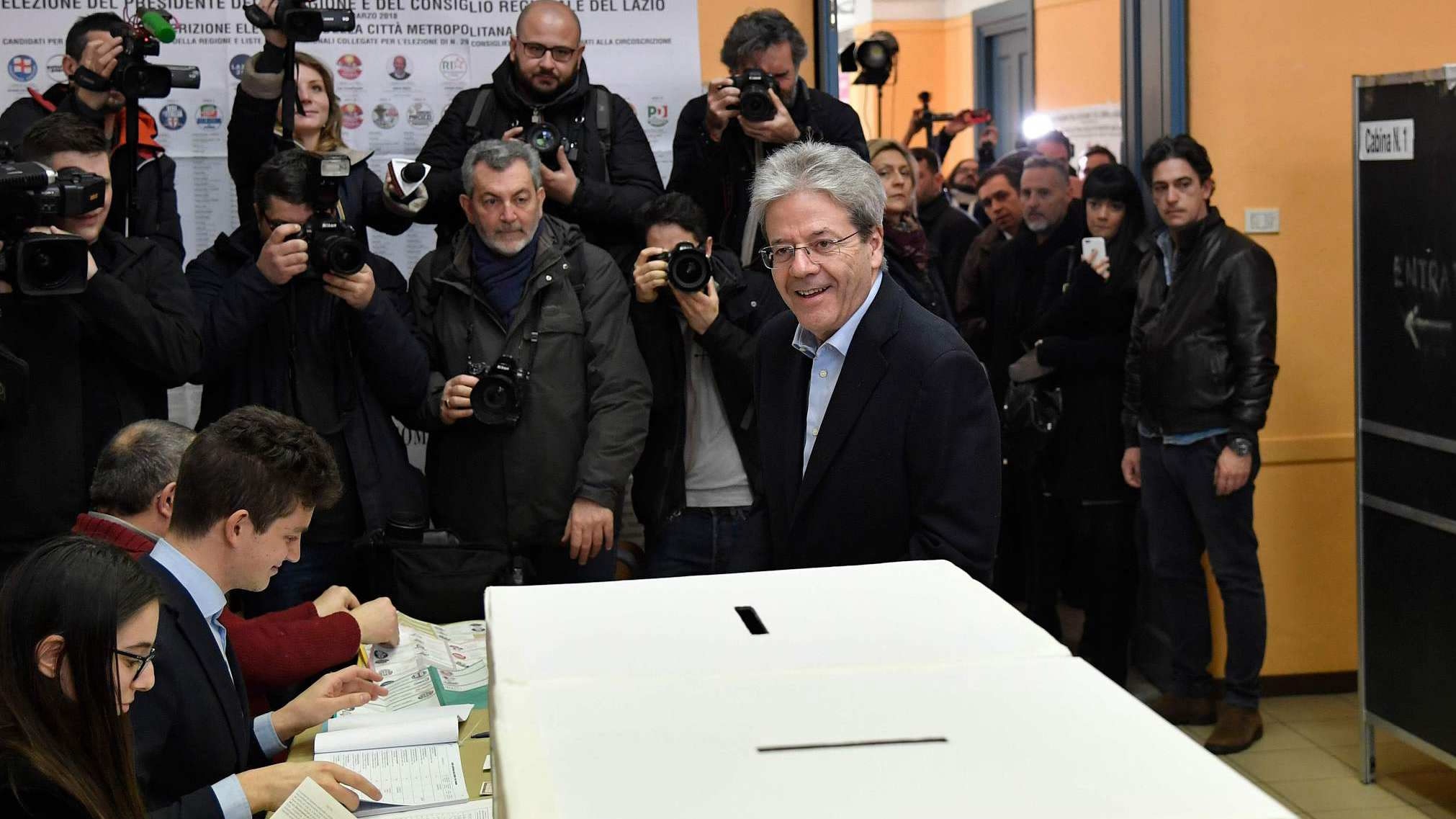
Politics
22:24, 04-Mar-2018
Italy votes in uncertain election stalked by populism
CGTN

Italians went to the polls on Sunday in one of the country's most uncertain elections ever, with far-right and populist parties expected to make major gains and Silvio Berlusconi set to play a leading role.
Polling stations opened at 0600 GMT and will close at 2200 GMT, with initial results expected early on Monday.
Tensions between far-right and anti-fascist activists have marred a gloomy campaign dominated by fears about immigration and economic malaise.
"This election campaign has been pretty squalid, including from the Democratic Party (PD), who I voted for," 24-year-old barber Mirko Canali told AFP after casting his vote in Rome.

A citizen (L) prepares to vote at a polling station in central Rome on March 4, 2018. /VCG Photo
A citizen (L) prepares to vote at a polling station in central Rome on March 4, 2018. /VCG Photo
He said he knew many other young people who, fed up with high youth unemployment, had decided to support the anti-establishment Five Star Movement (M5S).
"They're pissed off, can't bear (PD leader Matteo) Renzi anymore and maybe they're right," Canali said.
Many Italians are cynical about election promises made by the country's many squabbling parties and confused about what the outcome might be.
"We hope something will change because until now things have been very bad," said Enzo Gallo, an elderly shopper at a street market in Milan.
"The middle class no longer exists, the poor are becoming poorer, the rich are becoming richer and there is no social justice," he told AFP.

Former Prime Minister and leader of the Democratic Party (PD), Matteo Renzi (R), votes at a polling station in Florence on March 4, 2018. /VCG Photo
Former Prime Minister and leader of the Democratic Party (PD), Matteo Renzi (R), votes at a polling station in Florence on March 4, 2018. /VCG Photo
The result could be a stalemate between the M5S, three-time former prime minister Silvio Berlusconi's rightwing coalition and the ruling centre-left PD.
The last opinion polls before the vote put Berlusconi's coalition in the lead with 37 percent, followed by the M5S with 28 percent and the centre-left with 27 percent.
But under a new electoral law being tried out for the first time, any grouping would need at least 40 percent of the vote to command an overall majority of seats in both chambers of parliament.
"These elections are a lottery. It's been the case before, but never like today," said Roberto D'Alimonte, head of political science at Rome's Luiss University.
Source(s): AFP

SITEMAP
Copyright © 2018 CGTN. Beijing ICP prepared NO.16065310-3
Copyright © 2018 CGTN. Beijing ICP prepared NO.16065310-3